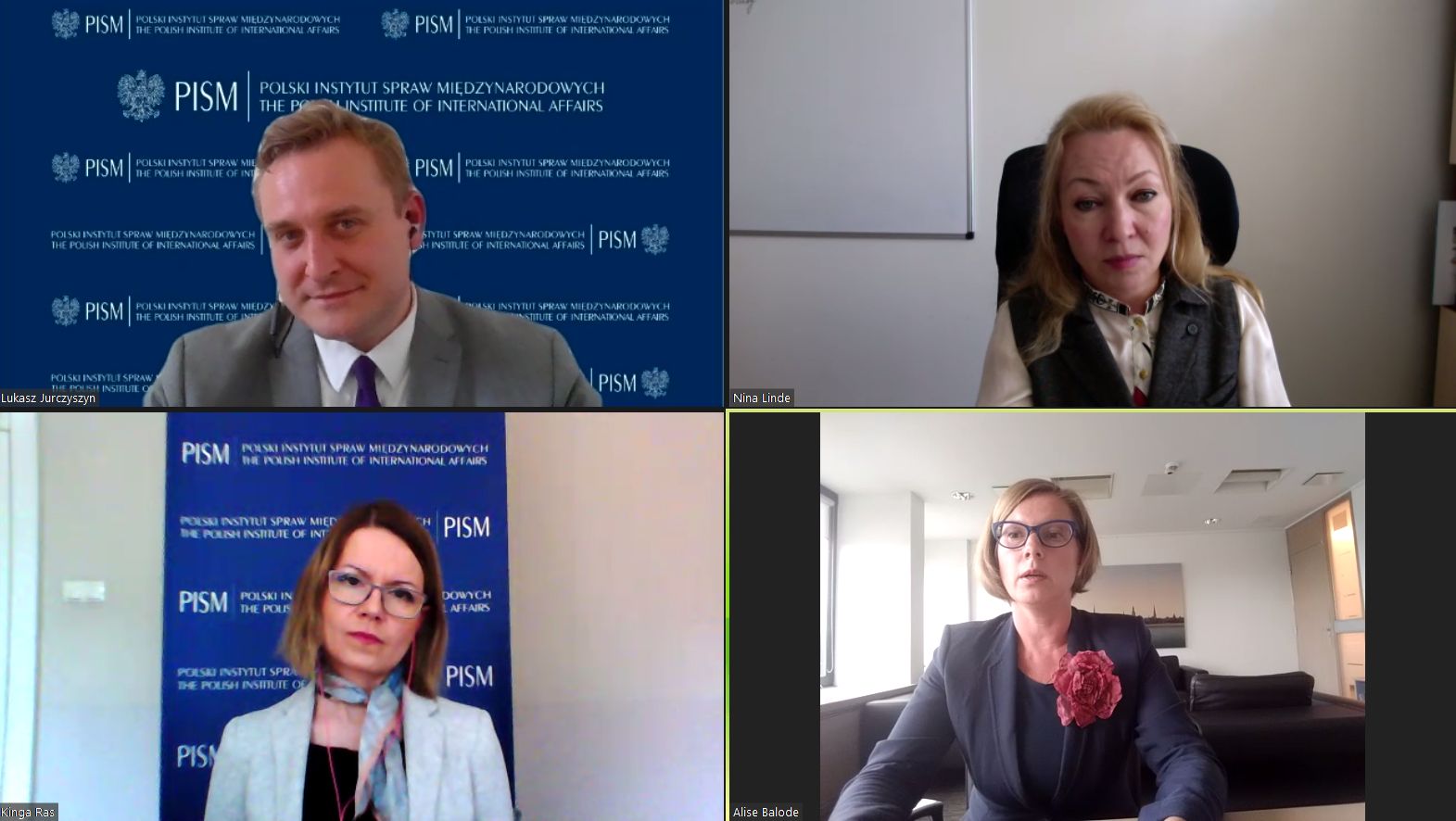16.06.2020, 15:30
 ©PISM
©PISM
Brussels Office
invites you to the Online Seminar:
Latvia’s Perspective on the Pandemic:
Economic Recovery and the Future of European Policy
16.06.2020 (Tuesday)
14.30-15.30 CET (Belgium)
AGENDA
Of the Baltic States, Latvia recorded the fewest infections of SARS-CoV-2 and introduced the weakest restrictions. At the same time, the country quickly decided on a significant recovery package to stabilise the country's economy. Our panellists will reflect on the following aspects of Latvia’s experience in dealing with the pandemic and its effect on both the economy and the country’s European policy:
- What is unique to Latvia’s experience in countering the pandemic? What distinguishes the country from other both Baltic and Central European states in its response to the pandemic?
- What tools and mechanisms have been implemented and were decisive in its management of the crisis?
- How will the pandemic affect the Latvian economy? According to recent IMF forecasts, costs could be extreme for Latvia, so how does the Latvian financial and labour markets adapt to the new conditions?
- To what extent will the pandemic and the anticipated economic slowdown affect Latvian policy in the EU? Will and at what level would Latvia support the EU budget plan presented by the EC, and how does this country assess the EU recovery fund from a budgetary perspective? What is Latvia’s position on Future Generation Europe?
Panellists:
Prof. Nina Linde, Director of the Institute of Economics, Latvian Academy of Sciences
Alise Balode, Deputy Permanent Representative of Latvia to the EU
Moderator: Kinga Raś, Research Fellow, The Polish Institute of International Affairs
Structure of the discussion:
- After the moderator’s introductory remarks, each panellist will have 8 minutes to present their views on our main subjects (20 minutes in total for the panel).
- The moderator will animate the discussion among the panellists and in the meantime, online seminar participants may submit questions for the QnA (10 minutes).
- The moderator will collect several questions and panellists will respond to them (20 minutes).
- Concluding remarks from panellists and moderator (10 minutes).
The event will be held in English
The note:
This conference was part of a series of discussions about the COVID-19 crisis and its effects in Central and Eastern Europe. The PISM Brussels Office has focused on the Baltic States. Two weeks ago, a similar conference detailed the Estonian experience. An online expert exchange on Lithuania is set for next week.
During the conference on Latvia, the emphasis was put on the country’s interesting experience in dealing with the virus and the effects of the pandemic on the economy and EU policy. Of the Baltic States, Latvia has recorded the fewest infections of SARS-CoV-2 and introduced the simplest restrictions. At the same time, Latvia quickly decided on a significant recovery package to stabilise its economy.
Dr. Łukasz Jurczyszyn, director of the PISM Brussels Office, started the online conference with introductory remarks about PISM’s aim to be a public platform for a regional perspective not often present in Brussels debates. Next, Kinga Raś, chief expert on the Baltics States at PISM and conference moderator, presented the following subjects, in the form of questions to the panellists, for the discussion:
- What is unique to Latvia’s experience in countering the pandemic? What distinguishes the country from other both Baltic and Central European states in its response to the pandemic?
- What tools and mechanisms have been implemented and were decisive in its management of the crisis?
- How will the pandemic affect the Latvian economy? According to recent IMF forecasts, the costs could be extreme for Latvia, so how does the country’s financial and labour markets adapt to the new conditions?
- To what extent will the pandemic and the anticipated economic slowdown affect Latvian policy in the EU? Will and at what level would Latvia support the EU budget plan presented by the EC, and how does this country assess the EU recovery fund from a budgetary perspective? What is Latvia’s position on Next Generation EU?
Raś then presented our two distinguished panellists:
- Prof. Nina Linde, director of the Institute of Economics, Latvian Academy of Sciences
and,
- Alise Balode, deputy permanent representative of Estonia to the EU.
During the discussion, they provided expertise both on strict economic (internal and external) themes and on Latvian officials’ somewhat highly detailed plan in dealing with the pandemic. For instance, Balode stated that the officials followed the advice of their health experts and stepped up the use of digital services. The experts presented not only Latvian internal policy but also insights on its economic relations with regional partners. Prof. Linde said that the only way to succeed and overcome current socio-economic crisis is to combine a kind of triple logic—national, European, and regional—to monetary and industrial policy. The regional logic for Latvia involves countries like Poland and others from Central and Eastern Europe.
Ras’s latest analysis on how all three Baltic States have been affected by the virus was used during the discussion to amplify the uniqueness of Latvia’s experience.


